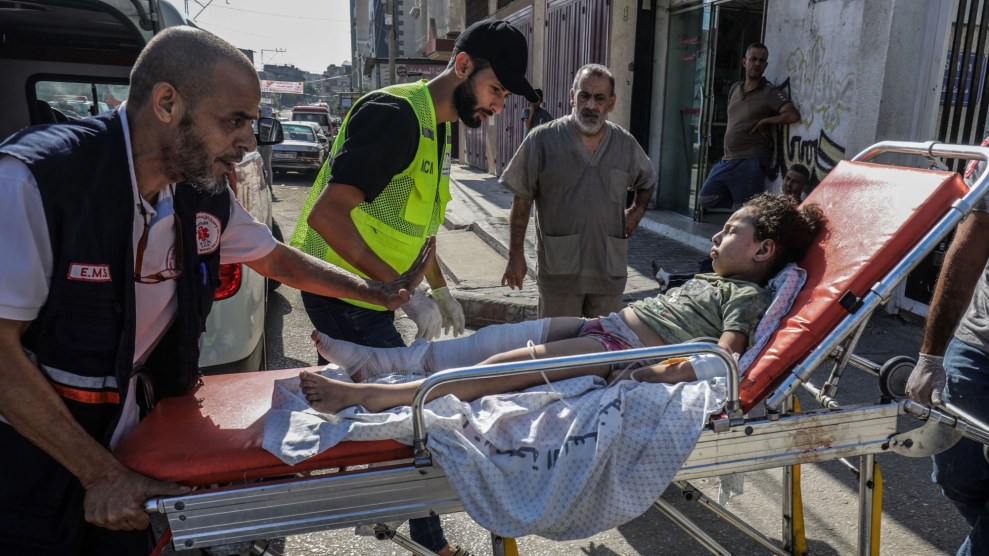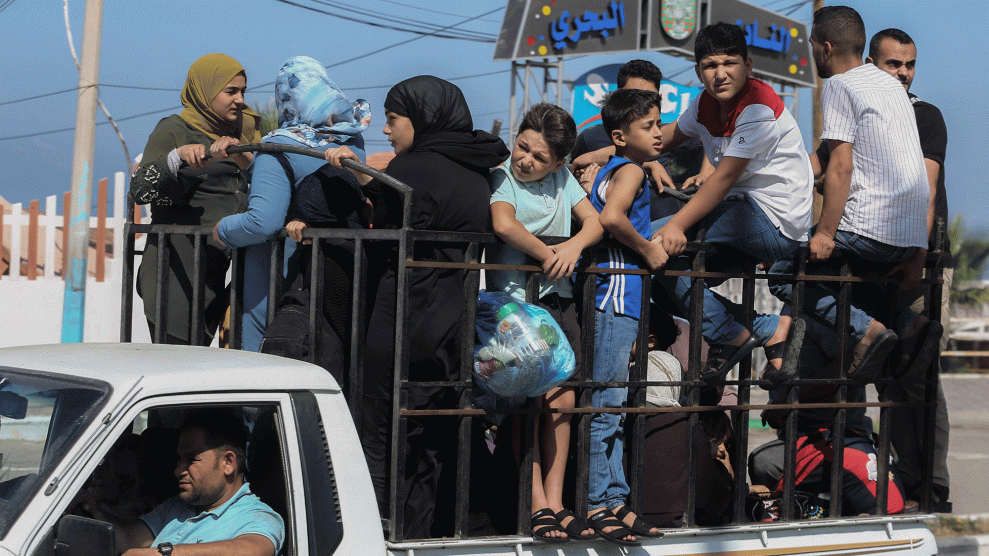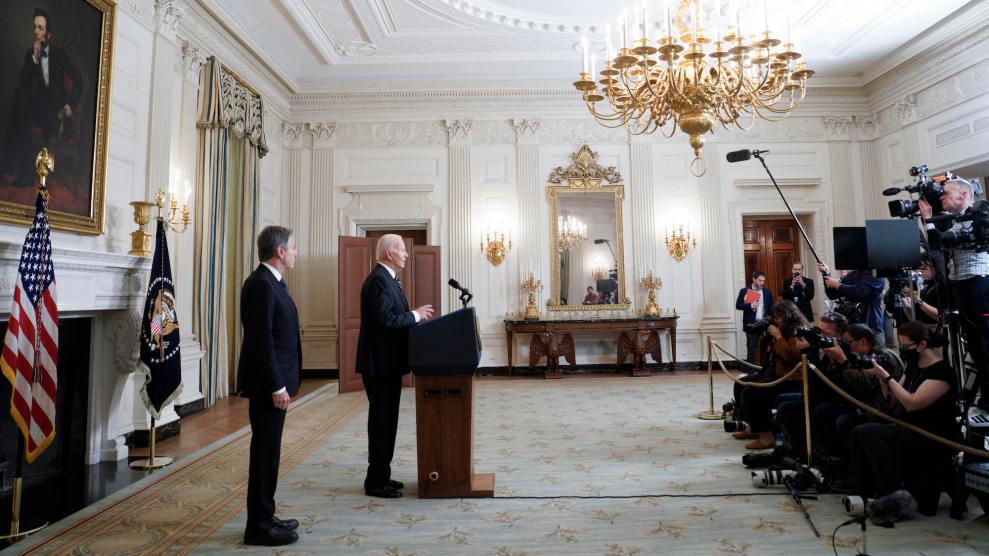
An injured Palestinian child is rushed to a hospital after an Israeli airstrike.Abed Rahim Khatib/DPA/Zuma
The Israel Defense Forces has renewed evacuation orders for portions of Gaza as it prepares its announced plans for “coordinated attacks from the air, sea and land” in retaliation for last week’s Hamas attacks. Meanwhile, the humanitarian crisis in Gaza continues to deteriorate as desperate families flee northern sections of the territory by car, bus, and on foot. According to the World Health Organization, the IDF has told Palestinian health workers to vacate 22 hospitals in the area, a measure the United Nations agency has said would be “a death sentence” for many patients.
On Saturday, a UN human rights expert warned of a “grave danger of mass ethnic cleansing” of Palestinians. “The United Nations and its Member States must intensify efforts to mediate an immediate ceasefire between the parties, before we reach a point of no return,” said Francesca Albanese, a UN special rapporteur for the Palestinian territories. “The international community has the responsibility to prevent and protect populations from atrocity crimes. Accountability for international crimes committed by Israeli occupation forces and Hamas must also be immediately pursued.”
“There is a grave danger that what we are witnessing may be a repeat of the 1948 Nakba, and the 1967 Naksa, yet on a larger scale. The international community must do everything to stop this from happening again,” Albanese explained. For Palestinians, the current forced displacement carries echoes of those historic episodes: the Nakba, literally meaning “catastrophe,” saw more than 700,000 Palestinians uprooted surrounding the establishment of the state of Israel; the Naksa, meaning “setback,” featured more expulsions and territorial seizures by Israel amid its war with neighboring Arab states.
Since Hamas’ surprise attack on October 7 killing 1,300 Israelis and taking dozens of hostages, more than 2,300 residents of Gaza, according to the Palestinian Ministry of Health, have been killed by Israel’s bombing, including hundreds of children. The ministry says a further 9,700 people have been injured. On Thursday, the IDF issued an evacuation order for 1.1 million Palestinians to move out of northern Gaza within 24 hours amidst heavy airstrikes; the Israeli government has announced limited hours when they will refrain from attacks on southbound corridors.
Nearly half of Gaza’s population of 2.3 million is under 18 years old. In response to last weekend’s attacks, Israel’s minister of defense announced a “complete siege” of the territory, which is under the control of Hamas, and shuttered border crossings while cutting off food, water, and electricity. People in Gaza have been living under a 16-year blockade enforced by Israel, with the backing of Egypt.
“Evacuate south for your own safety and the safety of your families and distance yourself from Hamas terrorists who are using you as human shields,” an Israeli statement said. UN Secretary General António Guterrez has said the evacuation order is “dangerous and deeply troubling” and called on Israel to reconsider it. He also condemned the Hamas attacks, but noted they “do not justify responding with collective punishment of the Palestinian people.”
While the Huffington Post reported on Friday that the US State Department had instructed diplomats to call for neither “de-escalation” nor an “end to… bloodshed,” on Sunday morning, Biden administration National Security Adviser Jake Sullivan told NBC that it was critical that “there be safe places for civilians to go that will not be subject to military bombardment, where they can be safe physically, and where they can have access to the essential food, water, medicine, shelter.”
















